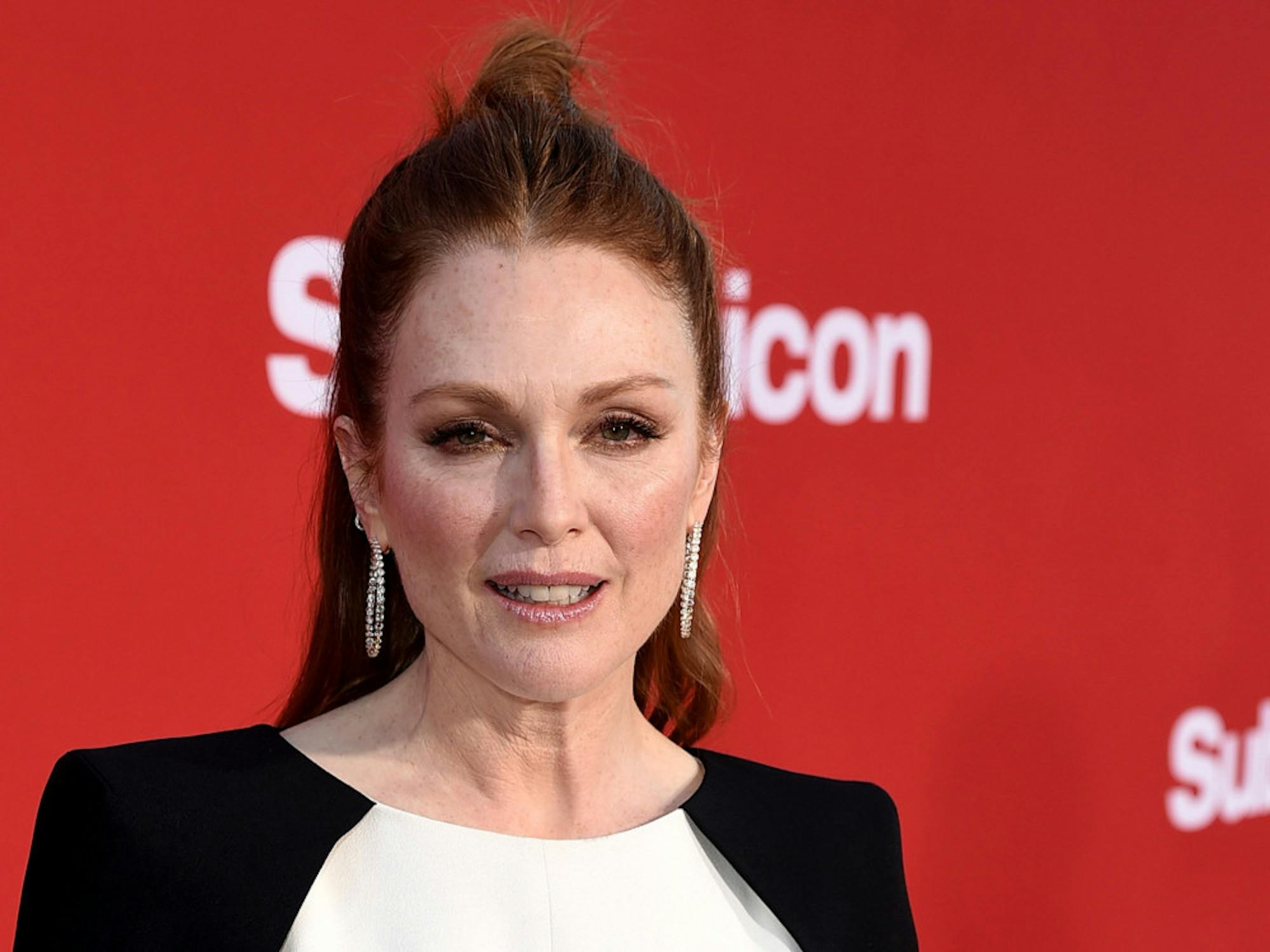Brookline’s Coolidge Corner Theatre hosted “An Evening With Julianne Moore” on Thursday night. The event, which brought the star of the recent film “Gloria Bell” (2019) just minutes away from her old stomping grounds as a theater student at Boston University, featured a conversation with the Academy Award-winning actress and Boston Globe film writer Loren King. The night concluded with the presentation of the 2019 Coolidge Award to Moore.
The event at the Coolidge represented a homecoming of sorts for Moore, just down the road from her alma mater. She was enthusiastic about the role her time in Boston has played in the development of her career: “It’s awesome to be here in a city that was so formative for me as an actor ... so many memories,” Moore noted as she accepted the award, whose previous honorees include Jane Fonda, Werner Herzog and Meryl Steep.
Beyond her college years in Boston, Moore and the Coolidge Corner Theatre already have a fair amount of intertwined history. “I saw 'Eraserhead' (1977) here!” she remembered early in the conversation, to laughs.
The connections run deeper: the theater’s longest-running show of all time was “Vanya on 42nd Street” (1994), which Moore starred in. They also host an annual screening of “The Big Lebowski” (1998), in which the actress portrays the domineering artist Maude Lebowski. Through these serendipitous mementos, however, Moore went on to emphasize the importance of theaters like the Coolidge Corner Theatre throughout the Boston area in deepening her perspective of cinema as an undergraduate.
“My dad was in the army,” Moore explained. “Those theaters showed the popular movies ... It would be something like 'Aristocats' (1970).”
She counts the independent theaters she encountered in Boston when she ventured back to America from her family’s overseas base in Germany, like the Coolidge, Cambridge’s Brattle Theatre and others, as critical to the development of her artistic outlook. “I saw everything in Boston ... Godard, Truffaut, Altman,” Moore said.
Moore would go on to win her first considerable praise from film critics in a Robert Altman film, 1993’s “Short Cuts.” It is precisely in the tradition of auteurs like Altman that Moore and filmmakers like Todd Haynes first gained major recognition during the independent film revolution of the mid-1990s, a movement she hailed as “a miraculous time in cinema.”
“Suddenly, people started making these movies on very low budgets ... taking huge chances on things we’d never seen before,” Moore recalled.
Her success in films such as Haynes’ “Safe” (1995) catapulted her to the position of one of the decade’s most talked-about actresses. Her somewhat late-blooming success on the big screen came as a surprise even to Moore herself.
“I had accepted that my career would be in TV and off-Broadway,” she observed.
Reminiscing about her early days on the stage and on television, including a stint on legendary soap opera “As the World Turns” (1956–2010), Moore took this opportunity to stress the value of judging actors based on their performances rather than the role: “It’s really important to look at the work, not the medium.”
Always keeping that maxim in her back pocket has propelled Moore into the highest echelon of the industry, and she is showing no signs of complacency. She discussed two of her upcoming projects, one of which will be a family affair. Her husband, filmmaker Bart Freundlich, will direct her in “After the Wedding” (2019), a remake of a 2006 Danish film of the same name.
She also talked about her upcoming role as pioneering feminist Gloria Steinem. “It’s based on her autobiography … it’s not a straight-up biopic ... more impressionistic,” Moore explained. She recalled her work with Steinem herself in glowing terms: “She is a true leader, incredibly open and tolerant ... always teaching.”
Working with Steinem is an unlikely end for the career trajectory of a one-time cocktail waitress at Kenmore Square’s Up & Up Lounge, but Moore seems just the figure to bring such a story to life. Her next challenge to the industry is to give women filmmakers their rightful due: “Women are 51% of the population ... not a special interest group.” With Moore spearheading the fight for gender equality in Hollywood, it would be unwise to bet against it.
Julianne Moore speaks at Coolidge Corner Theatre

Julianne Moore is pictured.





